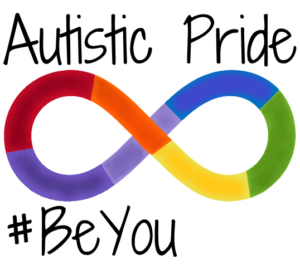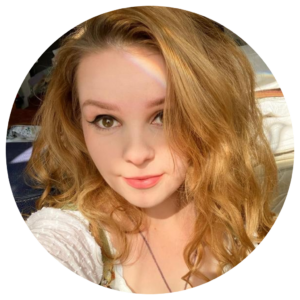I did it again: congratulated an adult when he said he just got his autism diagnosis.
Why do many Autistics give congrats to those who reveal a very recent diagnosis of ASD?
There are several reasons why some autistic people enthusiastically congratulate anyone who announces they just received a diagnosis of Autism Spectrum Disorder.
My most recent congratulations went to a man in his 20s who, a few months prior, had told me that he’d been strongly suspecting he was autistic and in the process of pursuing an assessment.
When I saw him a few months later at the same place, a pizza eat-and-meet for autistic adults (or those who believe they’re on the Spectrum), I wondered if he had gotten his diagnosis.
But before I had a chance to ask, he approached me with this glow in his eyes and said, “I had my assessment.”
“Did you get the diagnosis?” I asked.
He affirmed this, and I could tell by his voice that he must’ve felt some kind of relief upon getting what certainly was a validation after years of struggling to understand why he had challenges that others didn’t.
When I had revealed my diagnosis at a small autistic meetup the previous year – a weeks’ old diagnosis – the moderator of the group (autistic himself) said, “Welcome to the club!”
Not all Autistics congratulate those who disclose a very recent diagnosis, but a good number most certainly do.
This doesn’t mean we blindly, without thinking, give the congrats, though.
If someone revealed to me that they just got an ASD diagnosis, but they appeared to be shaken up by it, distressed, forlorn – I would not congratulate them.
But I wouldn’t show pity or sympathy, either!
Thus far, though, whenever someone has revealed a recent autism diagnosis in my presence, none have shown sadness, sorrow or pain.
Why might an Autistic congratulate someone who reveals a recent autism diagnosis?
#1 It’s Great to Finally Feel You Belong
We know this feeling, so we say “congratulations” when we find out that someone else has achieved this.
We are acknowledging that the newly diagnosed adult can now feel a kinship with a community of similar-thinking individuals.
One of the women at the pizza meetups, herself autistic, told me that her 18-year-old autistic son, whom she brought to the meetup, told her that the meetup was the first time he had ever been around people where he didn’t feel like he was among aliens.
It’s human nature to seek out a community for which one can feel a belonging, even if that community exists only in cyberspace.
Finally finding “your people” is truly worthy of a congratulations.
#2 The Questions Have Finally Been Answered
An undiagnosed Autistic will go through life with many questions about themselves – and about other people – going unanswered.
Perhaps the biggest question is, “Why am I so different?”
- “Why am I like this?”
- “How many others feel this way?”
- “Why do I rub people the wrong way no matter what I do?”
- “How come I feel so taxed after socializing?”
- “Am I the only one who hates small talk?”
- “Why do people who show an interest in me eventually suddenly lose interest?”
- “Why do I get uptight with unexpected but small changes in plans?
There are always just so many questions — until one gets the ASD diagnosis. This is reason to celebrate!
When someone announces their new diagnosis, we all know that the wayward dots in their life have finally been connected. They finally have the answers.
#3 Learning that You Don’t Have a Personality Disorder or Trauma-Induced Issues After All
Thank God! What a relief to know we aren’t broken or malfunctioning!
I’m so happy for the person who just learned that they don’t have a processing error, but rather, they simply have an alternate operating system!
Many autistic people express that the diagnosis gave them an instant tidal wave of relief.
However, it’s important to point out that some autistic people do, indeed, also get a concurrent diagnosis of a personality disorder or PTSD.
Nevertheless, the autism diagnosis is a realization that they are not defective individuals, but rather, born with a different neurotype: a neurodivergent brain.
What’s better for mental health?

We can either feel contempt towards our diagnosis of autism or embrace it. Which is better for mental health?
Not all Autistics will go the route of celebration and pride, and we are certainly not trying to convince them to. It’s a highly personal choice.
But at the same time, it’s important that people understand why there are Autistics who will yield a congratulations.
I told that young man that if he’s ever called for jury duty, he could get out of it by disclosing his autism diagnosis.
When it was time for him to leave he said goodbye to me, and I said, “Congratulations again!”
A nearby woman who had heard me asked him, “Oh, did you get a new job?”
“No, I just got my autism diagnosis.”
She said “Congratulations!”
A Brave Step Forward
“No one I know has been diagnosed with autism after I was already acquainted with them, but a few people have told me that they’ve applied to be diagnosed, and I definitely congratulated them!” says Jess Owen, co-creator with her sisters of thewyrdsisters.co.uk and diagnosed with autism at 25.
“I think whatever your views on autism, taking that step forward is a very brave thing to do, and people who do so deserve the full support of those around them.
“Moreover for me, though there are certainly days where I wish I was just ‘like everybody else,’ my autism is inherently a good thing.
“Therefore, welcoming a new person into the metaphorical club is always exciting.”
 Jess Owen, along with her sisters Emily and Abi, run thewyrdsisters.co.uk, about autistic sisters navigating a neurotypical world. Their goal is to spread information and awareness, and open up a conversation about neurodiversity that will make life easier for everyone.
Jess Owen, along with her sisters Emily and Abi, run thewyrdsisters.co.uk, about autistic sisters navigating a neurotypical world. Their goal is to spread information and awareness, and open up a conversation about neurodiversity that will make life easier for everyone.
 Lorra Garrick has been covering medical and fitness topics for many years, having written thousands of articles for print magazines and websites, including as a ghostwriter. She’s also a former ACE-certified personal trainer. In 2022 she received a diagnosis of Level 1 Autism Spectrum Disorder.
Lorra Garrick has been covering medical and fitness topics for many years, having written thousands of articles for print magazines and websites, including as a ghostwriter. She’s also a former ACE-certified personal trainer. In 2022 she received a diagnosis of Level 1 Autism Spectrum Disorder.
.










































